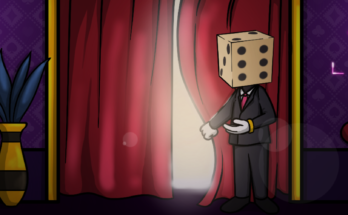
Gradually, the NFT market is booming. In 2018, the total sales volume of NFTs was $159.1 million. That figure grew to $250.8 million in 2020. NFTs have so many uses right now and are predicted to have more in the future.
One of the many uses of NFTs is in gaming. Here, NFTs have gained popularity and are important gadgets. Particularly, earlier this year, Fortnite players were reported to have spent millions acquiring a particular set of character skins.
With these numerous advances in NFTs, many people are still confused and pessimistic about the future of this technology. To further enlighten people as well as clear their doubts and confusion, we met with an expert in the technology, Ryan Dean Hoggan, to ask him pertinent questions.
Ryan Dean Hoggan is an experienced entrepreneur with over 18 years of leadership, business development, and entrepreneurial experience. Below is our discussion with him.
- Can NFTs be used as an investment?
Yes, they can be investment projects. The NFT market is still underdeveloped and has the potential for incredible growth. Therefore, investors can choose to tap into the NFT market with the expectation of great profits in the future.
- Since NFTs can be used as an investment, how profitable can they be in the long run?
Here is an example. Let’s say I acquire a piece of art for $1 million. Currently, not everyone has tapped into NFTs and the market size still has the potential to increase massively.
If I hold this piece of art for a couple of years, say 5 to 10 years, the market size would have grown massively by then; hence, I can choose to resell that piece of art for double, if not triple, the amount with which it was purchased.
- What problems in the economy can NFTs solve in the future?
If the NFT market is fully tapped into, the world’s economy will be improved greatly. There will be advancements in tracking the progress and keeping records of digital transactions.
NFTs will also safeguard digital identities, thus solving legitimacy-related problems. By confirming the ownership of assets and affirming the value of these assets, NFTs will boost the economy by limiting the chances of digital fraud.
IPwe and IBM have begun to use NFTs to provide a fair and liquid market for patents and intellectual properties. This transition will enable these assets to be smoothly sorted, transferred, and protected.
- Will there be restrictions or boundaries set on the acquisition of NFTs in the future?
Currently, anyone can acquire NFTs. The list includes teenagers, gamers, celebrities, business men, and collectors. In the US, Millennials are the largest group of NFT buyers, followed by Gen Xers and Baby Boomers. I don’t see the lack of restrictions on the acquisition of NFTs changing in the future.
NFTs are meant to provide a unique digital identity to everyone. Restricting the people that can benefit from that will provide chances of digital fraud, which is one of the key problems NFTs were created to solve.
- Is there anything we should look out for in NFTs in the future?
I think the world should watch out for the opportunities NFTs will bring in the future. They will be boundless.
Every sector will be affected by NFTs, from the business sector, to the health sector, to agriculture. Everything. It is important that everyone is educated on what NFTs are, how they work, and how they will change our future.



